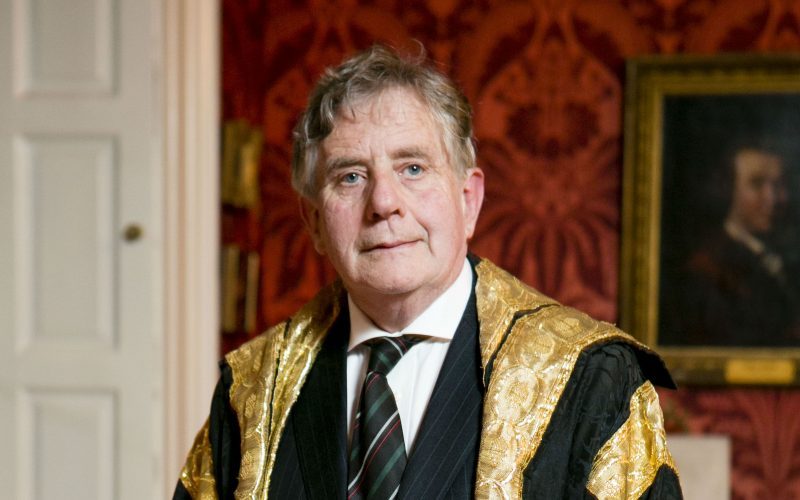Pro-chancellor of Trinity, Sean Barrett, has condemned government proposals to reduce universities’ ability to govern themselves directly, arguing that the changes would erode the “autonomy and diversity of Irish universities” and Trinity in particular.
In a 2,000 word statement, Barrett said that the proposals would “lead to a society which cannot tolerate even one autonomous university”. The pro-chancellor calls on the government to publish a green or white paper “stating what precisely are the Department of Education concerns about Irish higher education in general and Trinity College in particular.”
Proposed reforms to the Higher Education Act, presented by Minister for Higher Education Mary Mitchell O’Connor in July, seek to increase the State’s involvement in the affairs of higher education institutions as part of a reconfiguring of the Higher Education Authority to a more powerful Higher Education Commission (HEC).
Under the government proposals, College Board, the primary decision-making body within Trinity, will be significantly affected, which Barrett said “will reduce participation and undermine morale among staff and students”.
The proposed amendment requires that the 25 internal members of Board will be reduced to between four and seven, with external members appointed and commanding a majority of the Board positions, with the provost potentially losing his Board chairpersonship.
The “eroding” of College’s ability to govern itself by reducing the number of staff and student members of Board “contradict our democracy,” Barrett said. “Without full debate in the Oireachtas and its committees and throughout higher education itself, it would be wrong to seek in higher education the removal of elected Board members with valuable expertise, high attendance records and voluntary commitment.”
“At the lower limit of four internal members either the provost, or one from among the vice provost, senior lecturer registrar or bursar has to leave the Board. There will be no place for staff or student members,” Barrett said. If seven internal Trinity members are given membership, “there will be two seats remaining for elected staff and students”.
Students are currently represented at Board by the Trinity College Dublin Students’ Union (TCDSU) president and education officer.
Barrett argued: “It is a strength of the TCD system that the provost and most of its board members are elected. The Board of Trinity College draws on a wide range of expertise from across over 60 academic departments. Elections are contested and the attendance record of members is high at all 12 Board meetings per year.”
The pro-chancellor argues that the proposed amendment ignores the Charters of Trinity, which “protect its autonomy from political interference and are binding in perpetuity”. He said: “There is no evidence that Irish higher education has restricted the country’s progress or that the institutions are incapable of reforming themselves”.
A “full discussion” on the proposed legislation “is yet to take place,” according to Barrett. “There has been no discussion of the Department’s proposals at the Senate of the University or among its pro-chancellors.”
Barrett also opposes a possible change the Trinity Visitor system, a two person panel of the Chancellor and an external appointee who hear appeals against decisions of the College Board and interpret the College Statutes, under the amendment. “It has served College well and should not be subsumed into HEC,” he said.






